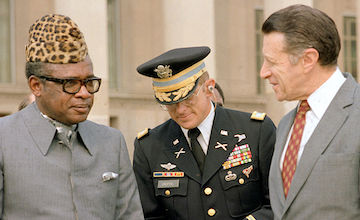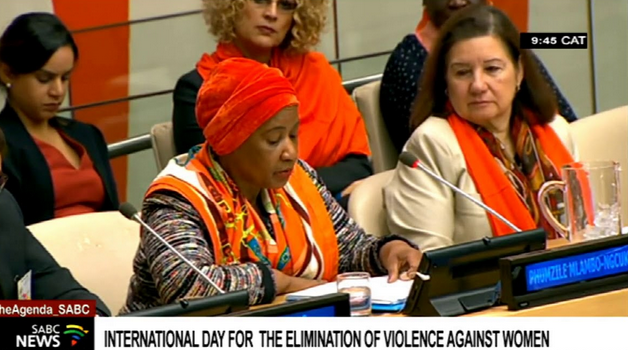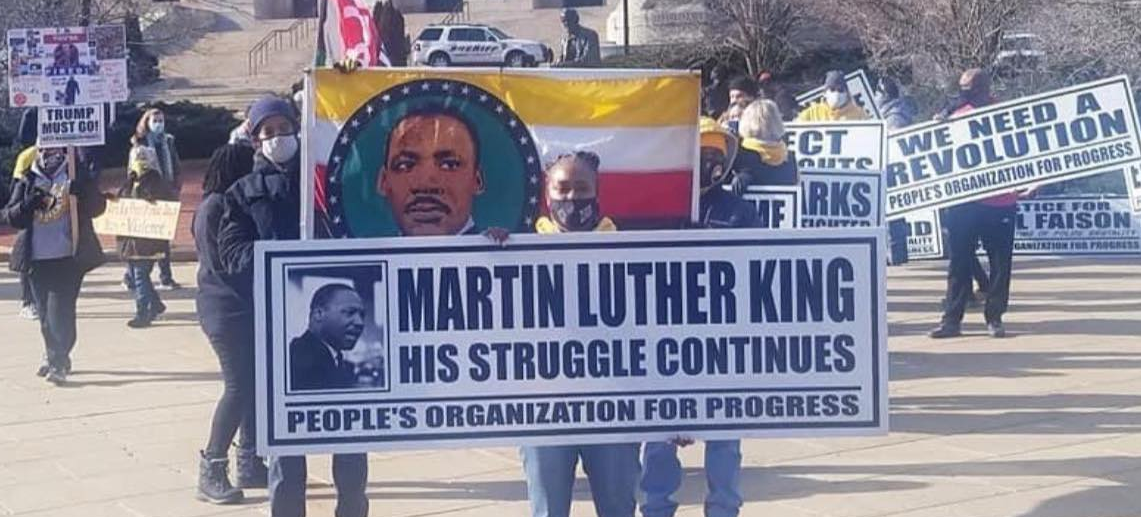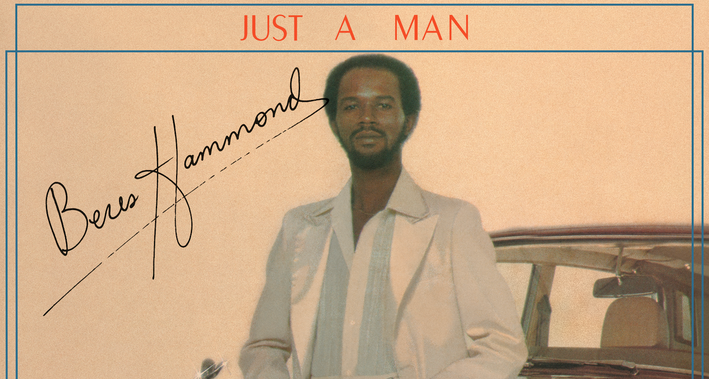Dictator Mobutu—installed and maintained over Congo by the West shown with U.S. Secretary of Defense Weinberger. His African successors are Uganda’s Museveni and Cameroon’s Biya. Photo: Wikimedia Commons.
In the post World War II period, Pan-European powers and elites have professed to be committed to the gospel of democracy, which they have retailed to the world with Orwellian double-speak flourish.
By “Orwellian double-speak” we mean a form of linguistic contortion in which power elites skillfully manipulate words and the truth to create uncertainty in the mind of the listener or reader in such a way that the words used mean something different from what the facts warrant. The expression Orwellian doublespeak is adopted from George Orwell’s book, 1984, where, when both Big Brother and Party say “peace” they mean war, when they say “love” they mean hate, and when they say “freedom” they mean slavery.
The latest and most notable installment of the marketing of democracy by a Pan-European leader was by U.S. President Joe Biden when, from December 9-10, 2021 he convened with fanfare what was advertised as “summits for democracy.” The retailing of the gospel of democracy by Pan-European powers and elites should be of much interest and interrogated because a cross-section of people in Africa has rather uncritically and more or less wholesomely taken the salesmanship on surface value.
In this article, rather than take the vague rhetoric marketed as evidence of meaningful commitment to democracy, I examine whether the rhetoric of Pan-European powers and elites have been matched by their policies and action in the continent. In other words, apart from the lofty rhetoric, what is the practical record of Pan-European powers in support or subversion of democracy in Africa?
To clarify, I borrow the term “Pan-European” from the world-renowned social scientist Immanuel Wallerstein. In his book titled: “European Universalism: The rhetoric of power,” he argues that when Pan-European powers want to impose their will and advance their narrow self-interests against militarily weak people, they have historically marshaled the rhetoric of universalism to achieve their ends. This is how he describes Pan-European modus operandi: “The tone is often righteous, hectoring, and arrogant, but the policies are always presented as reflecting universal values and truths.”
In this article, I draw on historical sources and use the case study of the Congo—otherwise commonly referred to as the DRC—to illustrate the approach by Pan-European powers and elites where and when the issue of democracy in the continent is concerned. I use the case study of the Congo for historical reasons.
But before I carry out an examination of whether the policies and action of Pan-European powers and elites have matched their rhetoric on the issue of democracy, it should be noted and remembered from the outset that the Congo (DRC) is a country that is fabulously rich in mineral resources and other tropical raw materials. The World Bank has estimated that Congo’s resource wealth at $27 trillion and these are the ones known. Congo also contains about 60% of the world’s cobalt supplies, a critical mineral as the world trends toward electric vehicles (EVs); a forward-looking strategy could yield many billions of dollars for the country.
The Congo is also strategically located and covers the geographical heart of Africa. The country is 77 times the size of Belgium, the country that Pan-European powers fraudulently mortgaged the Congo to as a colony. These factors have made the Congo a country of vital geo-strategic and economic importance to both Pan-Europeans and Africans.
It was after European geographical explorers, Christian missionaries and traders provided information about products and commercial possibilities, including abundant mineral resources, in the Congo Basin that it became a theatre for Pan-European rivalries and scramble in the last quarter of the nineteenth century.
In order to avoid conflict over the resources, Bismarck, the chancellor of Germany, convened an international conference in Berlin from November 1884 to February 1885. In historical perspective, the Berlin Conference set the template for how Pan-European powers would deal with African issues.
It was at the Berlin conference on Africa that Pan-European powers ashioned and agreed upon the ground rules and formula for effective occupation, exploitation and control of the continent among themselves. It should be noted that although Pan-European powers convened in Berlin to decree the fate of the continent for the foreseeable future, not a single representative of African peoples was invited.
At the end of the conference, with utter contempt for Africans, the Pan-European powers gave the Congo Basin, a land that did not belong to them, to King Leopold II of Belgium not as a colony but a personal estate of the monarch. They euphemistically designated the region “Congo Free State,” meaning it was free for exploitation among Pan-European powers.
Although Pan-European elites at the conference and beyond did not care much about African humanity, they showed insatiable appetite for African resources. It was in this context that from 1885 until 1907, Leopold II mercilessly plundered the country’s abundant resources while subjecting the people to a reign of genocidal terror. It is estimated that during his reign of terror, about 10 million Africans in the region lost their lives as a result of state-sponsored terrorism, forced labor, hunger and diseases.
It was only after the Englishman E. D. Morel and other ardent opponents of imperialism exposed the unspeakable atrocities committed against Africans that the international community acted decisively to transfer the Congo from King Leopold to the Belgian State in 1908. In other words, colonialism was considered a great improvement over Leopold’s genocidal regime in Africa.
Meanwhile, after the Berlin Conference, virtually every European power stormed with violence into the continent to deprive Africans the freedom to chart the course of their history. They usurped or extinguished the sovereignty and independence of the continent and of African people.
Beginning around 1900 and for more than six decades, Pan-European powers exploited their superior military technology to establish dominance, which they used to enact laws to effectively disable Africans in virtually every sphere of socio-political life. The colonial laws enacted did not only facilitate the exploitation of African labor and resources, to advance Pan-European socio-economic interests; but they also ensured that Africa and Africans were incorporated into the Western orbit of capitalism in a peripheral and dependent condition.
It should be noted that for the six decades that the continent was under Pan-European colonial rule, Africans were not allowed to exercise their democracy rights to choose who should govern them or what form of government they should be under. They were also prevented from industrializing—when the technology was becoming generally available elsewhere—so as not to compete with the Pan-European powers.
But following the devastation of World War II, when European global hegemony was in demonstrable decline, the USA played a commendable role in hastening the end of formal colonial imperialism in Africa. Affirmative US policy was occasioned partly by desire to displace European influence in the continent, and partly as a result of the advocacy of Ralph Bunche, who, as the highest ranked African-American in the State Department and later at the United Nations (UN) at the time, was opposed to colonial racial discrimination. Bunche’s contribution to the advancement of decolonization agenda at the UN came after 1946 when he was appointed to head the Trusteeship Council, whose main function was to handle problems of countries and people who were agitating for freedom from Pan-European colonial domination. The agenda culminated in the adoption by the UN General Assembly of resolution 1514 of 1960, titled: “Declaration on the Granting of Independence to Colonial Countries and Peoples.”
Although the declaration, which stated that: “All peoples have the right to self-determination; … [and to] freely determine their political status and freely pursue their economic, social and cultural development” transformed the political ideal of self-determination into a legal right, it neither brought about socio-economic liberation in the continent nor did it extricate Africa from the Western orbit of capitalism in a dominated position. Nonetheless, for the first time, it afforded Africans the right to choose the form of government under which they might live.
As indicated above, in the post decolonization era, especially after 1960, Pan-European powers and elites have professed in their rhetoric to stand for democracy in Africa in particular and in the world at large. What does the record of their policies and action in the DRC tell us about their support or subversion of democracy in the continent?
On June 30, 1960, Belgium, under African nationalist pressure, hastily granted the Congo juridical independence without any reasonable preparation. In the confusions that ensued, Patrice Lumumba, leader of the Pan-African leaning political party called Mouvement National Congolais (MNC), was elected as prime minister. But because Lumumba was independent-minded and sought to pursue non-aligned policies between the West and East during the Cold War, the West marked him for elimination. According to the book “Assassination of Lumumba,” by Ludo De Witte,“US President Dwight Eisenhower … instructed his aides to liquidate Lumumba and a top CIA unit was given the task of eliminating him. Brussels wholeheartedly agreed with this objective and also sent out a commando operation.”
On January 17, 1961, troops loyal to US-supported Colonel (later Field Marshall) Joseph Mobutu, and apparently under supervision of US and Belgium intelligence officers, summarily executed Lumumba in scenes of unconscionable brutality. Although his body was dissolved in acid, the Belgian policeman who oversaw the disposal of the body took his gold-crowned tooth as a trophy in a macabre display, which dispels the canard that the Belgians were a “civilizing” force in Congo. The tooth was returned for burial in the Congo after 60 years, in June 2022.
Why was Lumumba assassinated? Larry Devlin, the CIA station chief in the Congo at the time, gives us why he was removed from power. In his memoirs titled, “Chief of Station, Congo: Fighting the Cold War in a Hot Zone,” he writes that: “In a Hot War, one has to kill one’s enemies or be defeated. In the Cold War it was much the same, only one had to remove the enemy from a position of power in which he could contribute to the weakening of United States’ role in the world.” He added with arrogant cynicism that: “ When Headquarters asked why all was quiet, I responded that, in the Congo, nothing succeeds as success and nothing fails as failure. Lumumba had lost the game insofar as most Congolese were concerned, and they turned elsewhere for leadership. Gizenga and his allies used Lumumba’s name to advance their objectives by depicting him as a martyr, but the average Congolese went about his business trying to feed his family and survive.” Larry Devlin’s statement about the elimination of Patrice Lumumba reveals the politico-moral imperatives of the US during the Cold War. More than this, however, it might have been intended also to serve as a warning, foreboding and foretaste to other independent-minded African leaders, about their possible fate.
In fact, in the decades following the martyrdom of Lumumba, a number of progressive African leaders, including Kwame Nkrumah of Ghana in February 1966, and Milton Obote of Uganda in January 1971, were ousted from their position of power for similar reasons by a section of their military with the support of foreign forces. However, during the same period, with protection of foreign forces, not a single servile neo-colonial African ruler who was content to continue to live in a state of refurbished servitude was overthrown from power. On the contrary, records show that neo-colonial African rulers, such as General Yoweri Museveni of Uganda and Paul Biya of Cameroon, have changed constitutions, plundered resources of their countries, committed gross human rights violations against their people and remained in power for unlimited tenure often with the connivance and patronage of Pan-European powers.
The Pan-European powers and elites who have supported servile neo-colonial rulers in Africa should know from their history that viable democracy has never been built upon servitude, violence, intolerance, fear and denial of freedoms to citizens. Returning to the case of the Congo, although Western powers had installed General Mobutu as defacto ruler of the country in September 1960, it was not until November 24, 1965 that he formally carried out a military coup with the support of the CIA. Henceforth, he governed in partnership with his Pan-European patrons.
With the patronage of Pan-European powers, Mobutu established a personal dictatorship by privatizing the state, very much along the lines previously done by his colonial godfather King Leopold. During more than 35 years of corrupt and degenerate rule, he siphoned off billions of Congolese resources to Western capitals, where he was often dined and wined. In fact, at the time of his death, it is alleged that he had salted away about 16 billions dollars in Western jurisdictions.
The significance of the assassination of Patrice Lumumba and the installation of Mobutu in power is that it brought to a dramatic end the experimentation with a modicum of democratic processes in the Congo. This in turn set into motion the dynamics that led to the painful death of democracy there. Mobutu’s personalization of the state was symptomatic of the death of democracy in the Congo.
If Pan-European powers and elites would like to talk about democracy in Africa in a meaningful way, they should heed Archbishop Desmond Tutu’s remark that there can be neither meaningful reconciliation nor sustainable peace without the truth.
The truth is that politically conscious Africans can longer be hoodwinked by Pan-European powers and elites when they piously preach the gospel of democracy, while at the same time supporting servile neo-colonial rulers who have wreaked havoc to democratic processes in continent.
A starting point might be for Pan-European powers and elites to first examine and acknowledge their various roles in the demise of democracy in the continent. Here, the sterling example of the 1975 U.S. Senate Select Committee to Study Governmental Operations with Respect to Intelligence Activities could be emulated. The Committee’s report, under the chairmanship of Senator Frank Church of Texas, published in 1976, concluded that there had been a long tradition of intelligence excesses abroad and at home, which should be regulated within constitutional boundaries. One of the notable excesses was the assassination of Patrice Lumumba, which set in train forces that led to the terminal demise of democratic processes in the Congo.
The Congo’s calamity set off anti-democratic trends elsewhere in Africa.
Professor Amii Omara-Otunnu teaches history at the
University of Connecticut in the United States.







